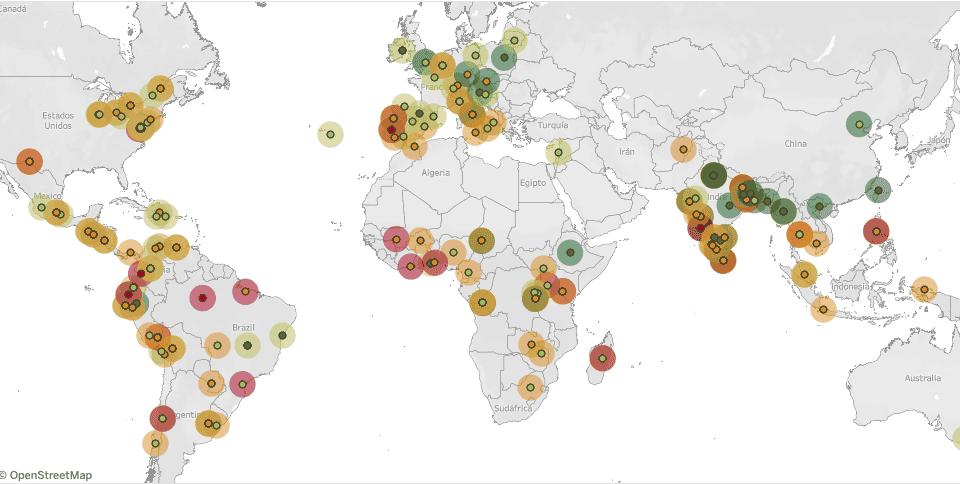Este sitio web utiliza cookies para que podamos ofrecerle la mejor experiencia de usuario posible. La información sobre cookies se almacena en su navegador y realiza funciones como reconocerle cuando vuelve a nuestro sitio web y ayudar a nuestro equipo a comprender qué secciones del sitio web le resultan más interesantes y útiles.
Is the Pope a maverick leader?
Most people would not expect the Catholic Church to have maverick leaders in its midst and certainly not at the top. Though perhaps at first sight somewhat unexpected, Pope Francis has in many respects the characteristics of a maverick leader. Will his organization, the Catholic Church, endure this? Those who know the Pope’s origins (and the origins of the Church), may be less surprised about the Pope’s actions, but the organizational outcome seems – even for insiders of the Church – unpredictable. Interesting stuff, if you’re doing research on organizational topics or wondering why your own organization spits out some of your maverick ideas…
What is a maverick leader?
A maverick leader thinks (and acts) independently, out of the box, challenges the status-quo, makes decisions that interrupt the business-as-usual mode of their organizations and insists that their company or organization works from a strong sense of integrity. The maverick leader is innovative, creative and eager to make change happen. Not for the sake of change, but because they really believe things can be done better, in a more authentic way, closer also to the basic values, ideas and ideals on which their organizations were originally founded. And, even though it’s not the maverick’s intention: people’s feelings (the established order) will get hurt. In my opinion, Pope Francis’ behaviour and ways of proceeding fit surprisingly well with the features of a maverick leader.
Can the Catholic Church endure a maverick leader at the top?
A simple yes or no to this question is impossible, because the current situation is unprecedented, so it seems. The Catholic Church, until today, has a reputation as an organization that does not precisely promote maverick behaviour. However: the foundations of the Catholic Church are built on game changing events that occurred more then 2000 years ago. Jesus acted independently, out of the box, challenged the status-quo. The story of the Church, its mission, is built on that.
And then there is also this: Pope Francis’ roots are in the order of the Jesuits. Ignatius of Loyola (the founder of the order) and his first companions, but also their successors, have a reputation of going to the frontiers, thinking out of the box and proceeding independently, while at the same time remaining faithful to the original mission of their order and the Church. One could maybe even claim that Jesuits are trained to be mavericks (look at my posts Why a religious order can teach us something about organizational excellence and The mind of a leader must be free…yes BUT).
What will be the organizational outcome of all this?
The one million dollar question now is: how will the Catholic Church as an organization deal with the maverick behaviour of its current leader? It is clear that there is people within the Church that is not precisely amused by the Pope’s behaviour and challenging ideas. But also outside the Church this Pope has opposition. There are even people fearing for the Pope’s security. Organizational experts tend to advise organisations and companies who want to be game changers to create contexts and environments where maverick people can ‘do their thing’ because it’s the best way to out-perform, out-think the competition. But what if the maverick is at the top? And what if there is no real competitor, and thus no sense of urgency or willingness to change? And is the Pope’s position really comparable with that of other (former) ‘mavericks at the top’ like Steve Jobs (Apple), Bill Gates (Microsoft), Richard Branson (Virgin)? Not completely, because they all founded their own organization which they controlled or control almost completely themselves. In the case of the Catholic Church we have a maverick leader of an organization that has its roots in something ‘maverick’ that occurred more then 2000 years ago but that has also proven since then to be pretty anti-maverick every now and then… And it remains to be seen if the Pope, with his maverick leadership, can overcome the inertia of the organization better known as the Catholic Church…. One thing is for sure: this was, is and will be an extremely interesting case for all those who want to understand more of the DNA of organizations…





